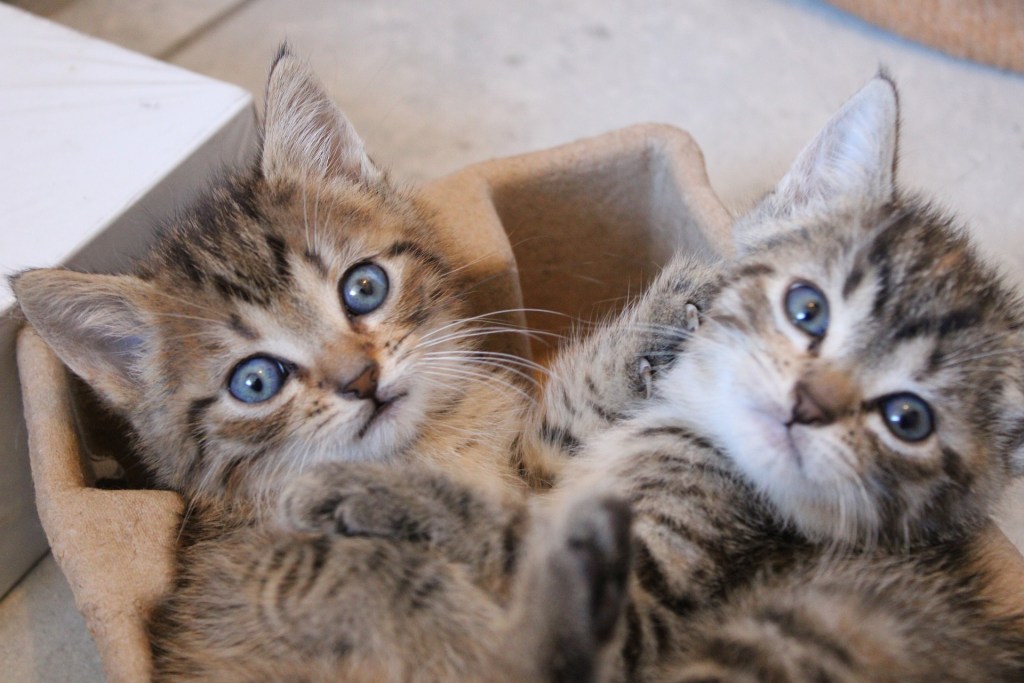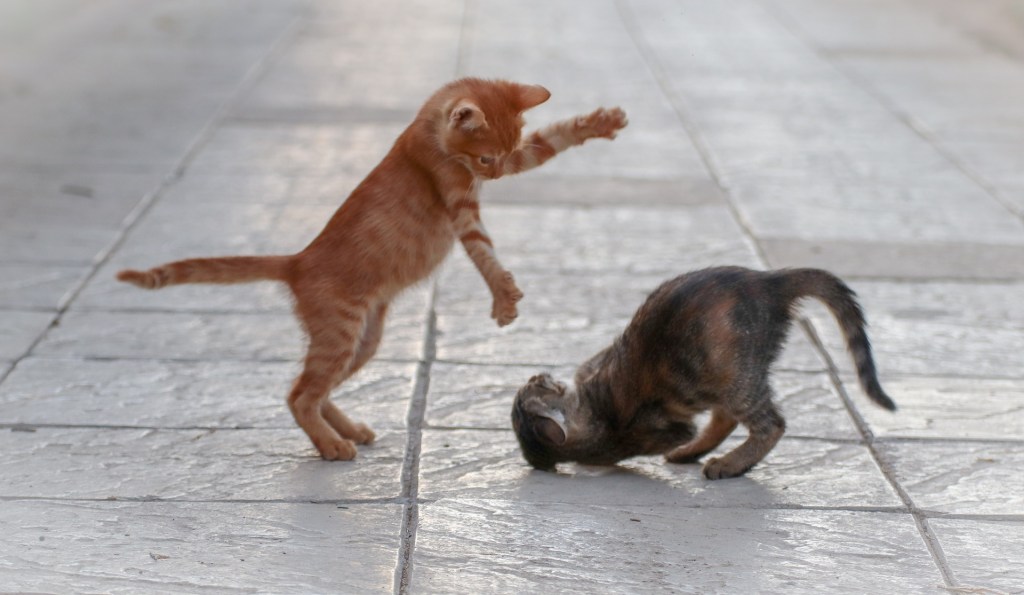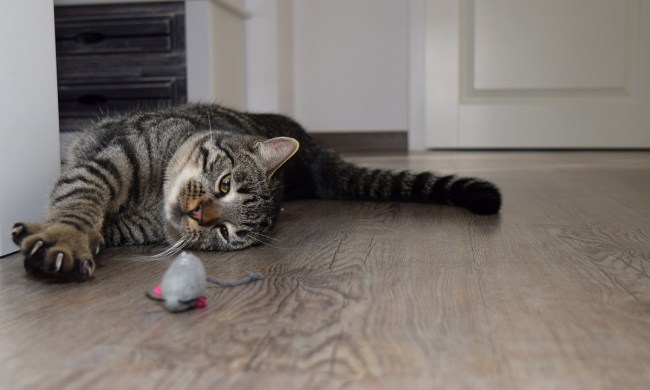Playtime serves several important purposes for cats. It helps them to get rid of extra energy, and kittens learn how to get along with other cats by playing with them. But if your cat lives alone, chances are your fur baby doesn’t see much of other cats. In this case, you might want to schedule a cat playdate. Playdates can help young kittens to learn how to interact with other cats, and some older cats may also appreciate the chance to play with other cats from time to time. Before you set up your first cat playdate, though, there are a few things you need to know to ensure it goes smoothly and your cat stays safe.

What is a cat playdate?
According to Petfinder, cat playdates are get-togethers that give your cat the chance to release some extra energy and interact and play with other cats. That interaction can have valuable perks for your cat’s socialization, particularly if your cat lives alone and doesn’t have another cat to play with regularly.
Cat playdates are most often successful with younger kittens who are still highly playful and more open to socialization. However, if you have a friendly and outgoing older cat, he may be a candidate for playdates, too.
Do cats need socialization?
Cat socialization is an important part of your cat’s overall health and wellness. According to ASPCA Pet Health Insurance, socialization refers to introducing your cat to not only other cats, but also to humans and other animals, too. Cats who aren’t socialized might be aggressive or timid, and they can have difficulty living with or meeting other cats, pets, and humans.
While it’s best to socialize kittens when they’re between two and seven weeks old and are more receptive to new things, most kittens aren’t adopted until they’re at least eight weeks old. Kittens tend to be pretty easy to socialize until they reach about 14 weeks, so be sure to take advantage of this window early on and expose your kitten to other kittens, pets, and humans.

How to safely set up playdates
Make sure both cats are healthy
If you’d like to give your cat a playdate, it’s important to keep safety in mind. Nova Cat Clinic explains that it’s important to make sure that the cats won’t transfer illnesses or fleas to each other. This is best accomplished by making sure that both cats are current on their vaccinations, that they have a negative FelV/FIV test, and that they’re both on a flea preventative. If any of the cats have symptoms of illnesses, they shouldn’t attend the playdate.
Match the cats’ personalities
You’ll also need to carefully find a cat who’s a match for your own cat and introduce them slowly. Petfinder recommends that you think about your cat’s personality, and look for a cat who would work well with that type of personality. If your cat is timid, you won’t want to pair her with a boisterous cat who might further intimidate her.
Meet in a neutral spot
Choose a neutral location where you can introduce the cats. Ideally, this is a location where neither cat has been, and where they haven’t had a chance to mark the space with their scent. Make introductions very gradually. It’s best to let the cats smell each other under a door, then gradually progress to letting them see each other through a gate. Watch for signs that your cats are comfortable with each other, like a relaxed body posture, before you let them interact face-to-face.
Keep in mind that cats aren’t always a good match for each other. If two cats just aren’t getting along, look for a different cat who might be a better fit for your cat’s playdate.
If you’re thinking of getting a kitten, then it’s important to plan out how you’ll provide socialization opportunities. If putting together cat playdates for your kitten is tough, then consider adopting multiple kittens together. The kittens will play with each other, can help to get some extra energy out, and will offer each other important companionship when you’re not home. Having a buddy can reassure a more timid kitten and even help to boost his confidence, and you’ll be in for twice the cuteness and twice the fun. With proper socialization, your kitten can grow up to be comfortable and confident around other cats, dogs, and humans.


